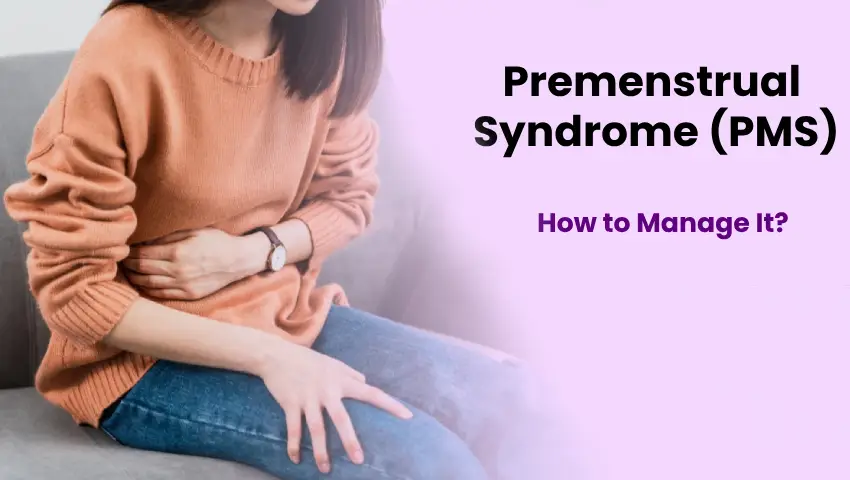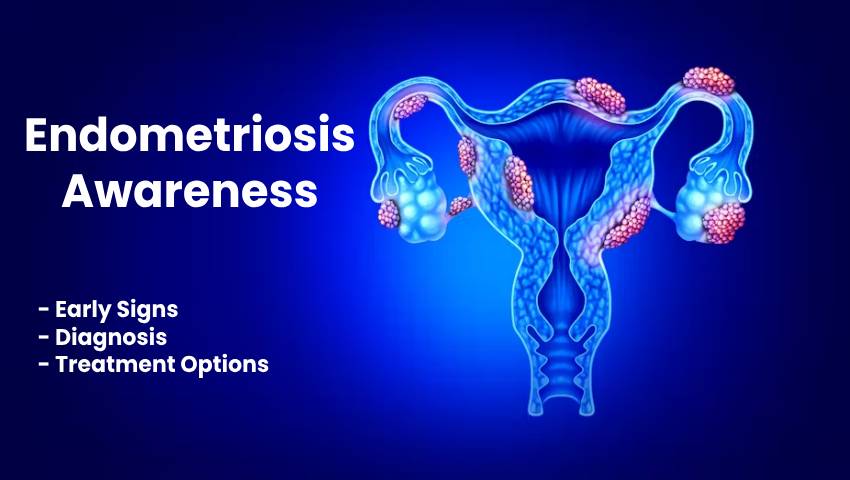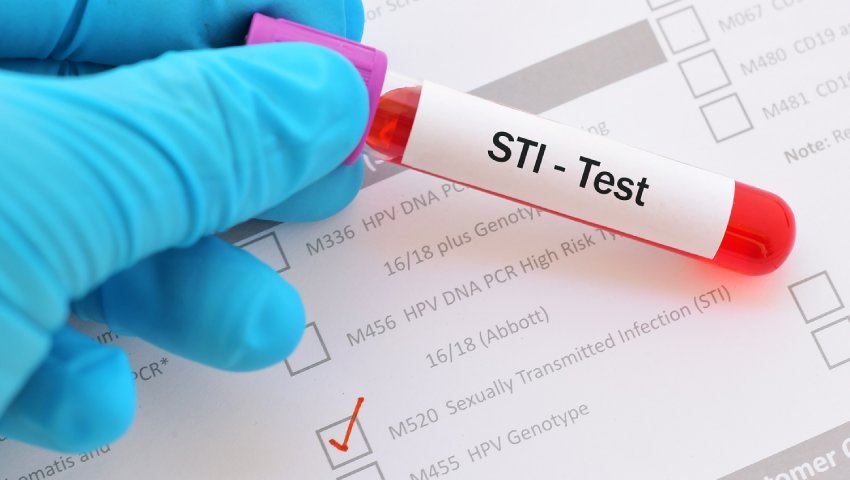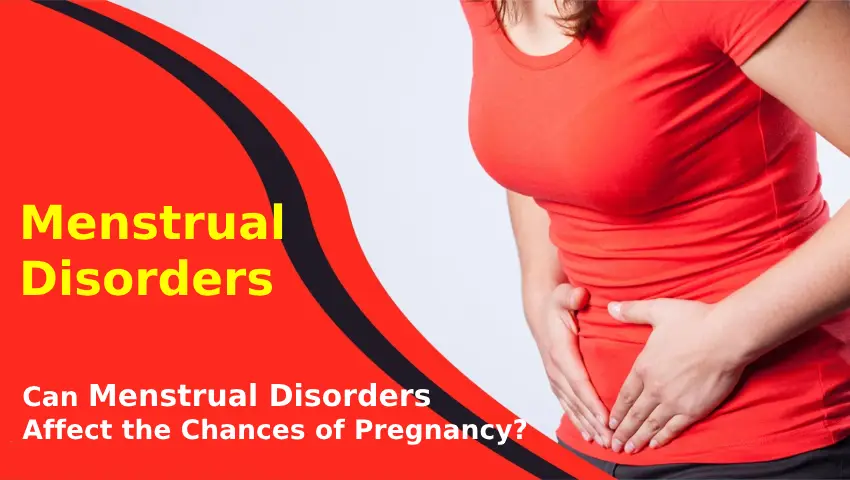Premenstrual Syndrome (PMS) is a health problem that many women experience before their monthly periods. It can cause physical and emotional symptoms like mood swings, bloating, cramps, tiredness, and breast tenderness. If you are searching for information on What Is Premenstrual Syndrome (PMS) and How to Manage It? this page will give you all the answers. We’ll explain the symptoms, causes, and simple yet effective ways to manage PMS naturally or with medical help. For personalised treatment, visit Dr. Shraddha Galgali, the Best Gynecologist in Punawale, Pune, at EXCELLA Women’s Wellness Clinic for expert care.
What is Premenstrual Syndrome (PMS)?
Premenstrual Syndrome (PMS) is a group of symptoms that many women face after ovulation and before their period starts. These symptoms typically subside when the period begins. Most women (over 90%) have some PMS symptoms, but only a few have severe problems. PMS is most common in women in their 30s.
Why Does PMS Happen?
After ovulation, if pregnancy does not happen, the levels of hormones like estrogen and progesterone drop. This change can cause PMS symptoms. The symptoms usually stop a few days after the period starts, when hormone levels rise again.
Types of Premenstrual Syndrome:
There are mainly two types of PMS:
- Mild PMS: Most women have mild symptoms like bloating, cramps, or mood swings. These symptoms do not affect daily life much.
- Severe PMS (PMDD): Some women have very bad symptoms called Premenstrual Dysphoric Disorder (PMDD). PMDD can make it hard to work, study, or enjoy life
Common PMS Symptoms:
Most women get a mix of physical and emotional symptoms. Some common symptoms are:
- Bloating before period: Feeling swollen or heavy in the stomach.
- PMS cramps: Pain in the lower abdomen or back.
- Fatigue: Feeling very tired before the period.
- Breast tenderness: Pain or swelling in the breasts.
- Mood swings: Feeling sad, angry, or anxious.
- Headaches: Pain in the head.
- Food cravings: Wanting to eat certain foods more than usual.
Some women also have trouble sleeping, anxiety, or depression before their period.
What causes Premenstrual Syndrome?
The exact cause of PMS is not known, but several factors can lead to it:
- Hormone changes: Levels of estrogen and progesterone change during the menstrual cycle. This can cause PMS symptoms.
- Chemical changes in the brain: Hormone changes can affect serotonin, a brain chemical that helps control mood. Low serotonin can cause mood swings, anxiety, and depression.
- Lifestyle factors: Poor diet, lack of exercise, stress, and lack of sleep can make PMS worse.
How do I know I have PMS?
There is no special test for PMS. Your doctor will ask you to keep a diary of your symptoms for 2-3 months. If your symptoms happen before your period and go away after your period starts, it is likely PMS. Sometimes, other health problems can look like PMS. Our doctor may do some tests to rule out thyroid problems, depression, or other conditions.
How to Manage PMS Symptoms?
Managing PMS is possible with simple changes in lifestyle, diet, and sometimes with medicines. If your symptoms are severe, you should visit a PMS specialist near me or a Women’s Clinic for PMS Pune Dr. Shradhha Galgali for expert advice.
- Bloating Before Period: How to Reduce: Bloating is a common PMS symptom. Here are some easy ways to reduce bloating:
- Avoid salty foods and processed items
- Drink more water to flush out extra fluids
- Exercise daily—even a 30-minute walk helps
- Eat potassium-rich foods like bananas and spinach
- Limit caffeine and alcohol
- PMS Cramps Relief Medicine: Cramps can be very painful for some women. Here are some common medicines and remedies:
- NSAIDs like Ibuprofen, and Mefenamic Acid ease pain
- Antispasmodics (Drotaverine, Hyoscine) reduce muscle cramps
- Paracetamol works for mild discomfort
- Hormonal pills help regulate periods and pain (doctor-prescribed)
- PMS Fatigue Remedies: Feeling tired before your period is common. Here are some ways to fight PMS fatigue:
- Sleep well: follow a fixed bedtime
- Eat balanced meals: cut sugar, add more grains and fruits
- Exercise lightly: boosts energy and mood
- Drink plenty of water
- Try relaxation: like yoga or meditation
- How to Reduce PMS Breast Tenderness? Breast pain and swelling before the period can be uncomfortable. Here are some tips:
- Wear a sports bra for extra support
- Cut down on salt & caffeine
- Eat magnesium-rich foods—nuts, greens, brown rice
- Apply a warm compress for pain relief
- PMS Anxiety Management: Anxiety before the period is common. Here are some ways to manage it:
- Exercise daily—improves mood naturally
- Eat complex carbs—oats, and whole grains help stabilize mood
- Practice deep breathing or meditation
- Limit caffeine, alcohol & screen time
When should you consider seeing our experts?
You should visit a Best Doctors For Pre Menstrual Problems Treatment In Pune or a PMS Treatment Center Pune if:
- Your symptoms are so bad that you cannot do your daily work or go to school.
- You have tried home remedies and lifestyle changes, but nothing helps.
- You have severe mood swings, depression, or anxiety.
- Your symptoms last for more than three months and follow a regular pattern.
- You have heavy bleeding or very painful cramps.
If you are in Punawale, Pune, you can visit Dr. Shraddha Galgali at EXCELLA Women’s Wellness Clinic for expert care.
PMS Diagnosis at Excella Women's Wellness Clinic:
At Excella Women’s Wellness Clinic, Punawale, diagnosis starts with a simple, friendly talk. Dr. Shraddha Galgali, one of the best PMS doctors near Punawale, will ask you about your symptoms, mood changes, and menstrual cycle. You might be asked to track your symptoms in a diary for 2–3 months. This helps the doctor understand when and how the symptoms occur—before, during, or after your period. To rule out other health issues like thyroid problems or anemia, basic blood tests may be advised. These are quick and help confirm the right diagnosis.
PMS Treatment Options at Excella Women's Wellness Clinic:
Once PMS is confirmed, Dr. Shraddha Galgali at EXCELLA Women’s Wellness Clinic will offer a customized treatment plan to suit your needs. You’ll receive personalized care with options such as:
- Medicines: Antidepressants, NSAIDs, diuretics, and hormonal birth control can be prescribed based on your symptoms.
- Lifestyle changes: Diet, exercise, and stress management are important parts of treatment.
- Counseling: If you have severe mood swings or anxiety, counseling can help.
- Regular follow-up: Your doctor will check your progress and adjust the treatment as needed.
PMS vs. PMDD:
PMS and PMDD are similar, but PMDD is much more severe:
- PMS: Mild to moderate symptoms that do not affect daily life much.
- PMDD: Severe symptoms that make it hard to work, study, or enjoy life. You may feel very sad, anxious, or hopeless. You may even have thoughts of harming yourself. If you have these symptoms, you must see a doctor immediately.
What are the Complications Of Premenstrual Syndrome?
Most women do not have serious complications from PMS. But if PMS is severe and not treated, it can lead to:
- Depression or anxiety: Severe mood swings can affect your mental health.
- Problems at work or school: Severe symptoms can make it hard to concentrate or perform well.
- Relationship problems: Mood swings and irritability can affect your relationships with family and friends.
Home Remedies for PMS?
In addition to medical treatment, you can try some home remedies:
- Warm compress: Apply a hot water bag on your lower abdomen for cramps.
- Herbal teas: Ginger tea and chamomile tea can help with pain and stress.
- Yoga and light exercise: These can reduce pain and improve mood.
- Healthy diet: Eat iron-rich foods like spinach and nuts, and avoid too much salt and caffeine.
Conclusion:
Premenstrual Syndrome (PMS) is a common problem for many women. With the right lifestyle changes, diet, and sometimes medicines, you can manage your symptoms. If your PMS is severe or affecting your daily life, do not hesitate to visit a doctor. For women in Punawale and Pune, Dr. Shraddha Galgali at EXCELLA Women’s Wellness Clinic is one of the best gynecologists for PMS and women’s health issues. Book an appointment today call us at 9923956515 for expert care and support.





